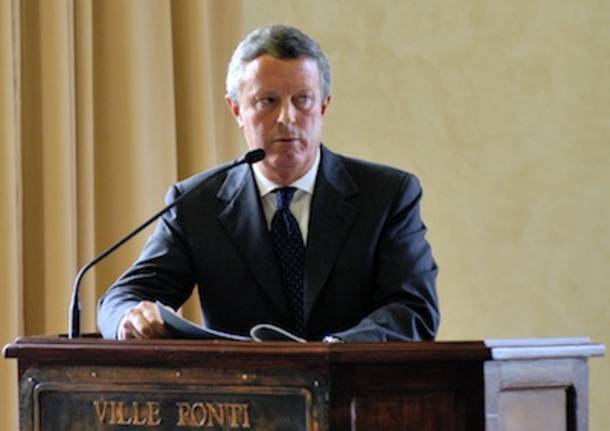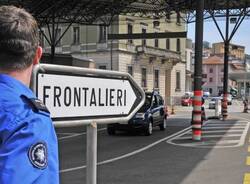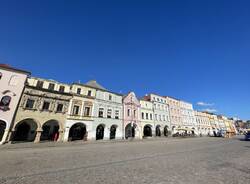“The traditional organic agriculture? It was that of famines and rice-weeders”
Confagricoltura Chairman’s report on the annual assembly spares no-one; neither Greenpeace nor Vandana Shiva, who have been accused of “crimes against humanity”

Who really feeds the world? It is around this provocation that the report by the Chairman of Confagricoltura Varese, Pasquale Gervasini, revolved, during the annual assembly that took place on Sunday morning, 19th April, at Ville Ponti. This is a question that the Chairman himself asked because of Expo 2015, and its goals, which, according toConfagricoltura, have already failed, even before the beginning of the event.
“Let’s begin with testimonials; neither a farmer, nor an agronomist, nor someone that has ever produced something,” Gervasini remarked, “but the same old names: Carlo Petrini, Oscar Farinetti, Vandana Shiva. They are all testimonials who push for agricultural models that are out-dated, redeemed of production, and overtly hostile to income and businesses. They speak about agriculture in terms of stories, of emotions and wishes, in terms of fashions and of tastes, not of people to be fed. De facto, Expo pivot around “food” said in English, which seems very chic: some starred chefs, a convention, an exhibition and the problem is solved.” This is a grave charge, that is, speaking about food avoiding who produces it, and rewarding those who confine themselves to merely speaking about it in a snobby way. “Carlo Petrini has criticized the presence of McDonald’s at Expo. I believed, instead, that on the contrary of Vandana Shiva and friends’ thought, McDonald’s actually helps to feed the planet. As everywhere in the world we can buy a two-euro sandwich.”
“But, at the end, how will we really feed the world?,” Gervasini continued to ask himself. “Opening starred restaurants in the third world or with the stands of Slow food? As one must be reckless and in bad faith to setting up a global fair about food singing at the praises of the organic, at the happy agriculture of the lost golden age or at the demonization of the scientific achievements, and those of technologies and, in closing, of the businesses.”
Obviously, “We’re not against Expo, let’s be clear about it. We’re disapproving, it’s true, but just because we ask for contents, nothing else. We want to think big and seriously; we don’t resign ourselves to an agriculture reduced to “a pavilion-show”. We’re not interested in a Vandana-Shiva show, Petrini and Farinetti’s little talks bore us, we consider the fact that they call us “farmers” as anti-historic.” Unfortunately, today, communication and politics give an anti-historic picture of our world and against progress; a message about a poetic agriculture, a recall to an idyllic past which has never existed and was actually made of famines, epidemics, fatigues, sufferings and very remarkable social inequalities. Just an example: it was a world where the weeding of rice was organic. Young women worked 12 hours a day for entire months with their legs in the water and their backs bent. Those young women didn’t have the means to consume what they produced. So the food wasn’t for everyone.”
Whereas, instead, “The “golden rice” is a GMO rice, which was invented to enrich the caryopsis with vitamin A and fight against the blindness of tens of thousands children in Southeast Asia. It’s a patented rice but it’s not cultivated as the opponents of biotechnologies, in spite of all scientific studies, believe that is not safe enough. What is sure, instead, are the damages caused by the delay in using the golden rice, esteemed to be 1,424,000 lives just only in India (figures by the magazine “Le Scienze”). The opponents of golden rice, from Greenpeace to Vandana Shiva, should be charged with crimes against humanity because of the deaths and the disabilities, above all among children, of which they are responsible, fighting a battle without any scientific foundations against a food that is in a position to save millions of lives and prevent tens of thousands of blindness cases.”
Instead, Gervasini recalled as, “Tradition is just a successful innovation. I’m saying it thinking about an eminent colleague, agronomist Nazareno Strampelli, the man who ferried the base of our nutrition from the Middle Age to the future, the wheat. Strampelli, who was surely able to do it legally, didn’t patent any of his kinds of wheat. He could have become rich, instead, he decided to feed the planet, and he really did it. He is an eminent and noble Italian, who the silence has fallen on, as his genetic school has got the ax of ideology. We do not forget him. Today, one of his kinds of wheat, the “senatore Cappelli”, is often introduced as traditional product. It’s not like that; Strampelli had to fight against who contested his innovative ideas using the very same reasons today we can hear against GMOs.”
The result of these boycotts? An Italian agriculture in economic suffering, at the mercy of non-systematic policies. “Eurostat told us that Italian farmers suffer far more than their European colleagues; during the last decade, the real income pro operator in Italy has sunk by 0.8%, whereas the European average has risen by 34.4%.This is the fruit of the lack of agricultural policies, the lack of interest towards business, of the seven ministers of agriculture in the last seven years. It’s a pity, because the concrete risk is that of losing skills and beauties of our land and above all businesses, which, once closed, don’t’ revive. It’s a pity, because the agri-business counts 2 million businesses in Italy, which, considering also the satellite activities, is worth 14% more than GDP, employs 3.2 million people in the production chain, is the emblem of the made in Italy in the world and has proven to know how to withstand the crisis more than any other economic sector. It’s a pity, even because, in our own small way, that is in our province, from 2008 to today we haven’t lost jobs (343,000 declared days in 2008 against 346,000 in 2013, last available INPS figures, the Italian National Social Insurance Agency.) So, which other sector can say to have done the same in these years of very bad crisis?”.
According to Gervasini, the system to go on is only one, and has nothing to do with any bucolic image. “Our recipe to feed the planet is simple and it’s always the same: enterprise and innovation. Since man started to breed animals and grow cereals, we don’t know another one.”
The title of the report, “Feed the planet, but for real” was also the title of the workshop that took place right after, which was moderated by Sebastiano Barisoni, journalist of Radio 24.
To this workshop participated also Tommaso Maggiore, lecturer in the agrarian faculty at the University of Milan, Roberto Defez of the C.N.R., Luigi Mastrobuono, general manager of Confagricoltura (confederation of Italian farmers) and the president of the Lombardy region, Roberto Maroni. Obviously, the debate started from the Eataly operations and
Expo, and from the effects of the GMO production ban in agriculture.
TAG ARTICOLO
La community di VareseNews
Loro ne fanno già parte
Ultimi commenti
Tsilvia su La patente a 18 anni? "Non è più uno status symbol"
PaoloFilterfree su "La sanità pubblica è a rischio privatizzazione": la raccolta firme on line contro il taglio delle tariffe
elenera su La patente a 18 anni? "Non è più uno status symbol"
Felice su La patente a 18 anni? "Non è più uno status symbol"
Alessandra Toni su "La sanità pubblica è a rischio privatizzazione": la raccolta firme on line contro il taglio delle tariffe
lenny54 su "La sanità pubblica è a rischio privatizzazione": la raccolta firme on line contro il taglio delle tariffe














Accedi o registrati per commentare questo articolo.
L'email è richiesta ma non verrà mostrata ai visitatori. Il contenuto di questo commento esprime il pensiero dell'autore e non rappresenta la linea editoriale di VareseNews.it, che rimane autonoma e indipendente. I messaggi inclusi nei commenti non sono testi giornalistici, ma post inviati dai singoli lettori che possono essere automaticamente pubblicati senza filtro preventivo. I commenti che includano uno o più link a siti esterni verranno rimossi in automatico dal sistema.